Long before Russ Lawton, Ray Paczkowski, and Scott Metzger joined forces, they ran in similar backstage circles at festivals across the country. Lawton and Paczkowski are longtime members of the Trey Anastasio Band, and Metzger has toured with projects including Joe Russo's Almost Dead, Circles Around The Sun, and WOLF! in recent years. The three quickly found that their personal chemistry could translate to the stage, and LaMP was unexpectedly born. After spending the last few years touring and recording, the trio has released their second studio effort, One of Us.
In a world of instrumental "musician's bands," LaMP wants to bring their sound to a wider audience. Though all three members have long-running roots in the jam and improv world, LaMP's music creates an accessible cross-pollination of dense, in-the-pocket grooves and heady virtuosic solos. The album's title seems to ring more true the further you dive into the record and experience the band's chemistry and creativity. From the earworm hooks and interplay of "Cosmo" and "Backfire" to the dynamics and roaring crescendo of "The River Jordan," listeners can picture Lawton, Paczkowski, and Metzger conjoining into a singular three-headed beast.
I spoke with guitarist Scott Metzger about One of Us, his early musical influences ranging from the Ramones to the Grateful Dead, LaMP's stretch of awful pandemic-related luck, and why instrumental music can be just as powerful as vocal music.

The Big Bang
Sam Bradley: Starting with some simple stuff, where did you grow up, and when did you realize you wanted to pursue music?
Scott Metzger: I grew up in a small town in New Jersey called Lambertville. There was not a whole lot to do in Lambertville. I always tell people, to give you a gauge of where I grew up, I graduated with thirty-six kids in my class at a public high school. I lived in a little town surrounded by farmland in every direction for miles and miles, and not many kids were super into music at my high school. I started playing the saxophone in the third grade because I had to choose an instrument, and I excelled. I understood music in general a little better than the other kids.
So then, when I was about fourteen, I got into punk rock. I went to a place in Trenton, New Jersey, called City Gardens, which is no longer there, to see the Ramones. That was the first show that I ever bought myself a ticket to. A week later, I bought a guitar because that night had such an enormous impact on me. I mean it was just the big bang in my life, you know, seeing the Ramones at City Gardens in '94 was it. I went out and bought myself a red Yamaha electric guitar and learned every Ramones song and every Misfits song that I could. I taught myself how to play, and the guitar made a lot of sense to me right off the bat. I played for some friends and my band director at high school, and their faces dropped because I could get around the instrument pretty good after just playing for a minute. I never imagined I could do it for a living, though. What's going on now in my life is beyond anything I could have pictured happening.
Sam: What is your relationship with punk rock today? Does it still influence you?
Scott: Oh absolutely! I'm talking to you from my office, which looks like a teenager's room. I have about sixty or seventy posters on the walls and ceiling. I'm looking at a Ramones poster right here. I'm looking at a Misfits poster over there. I mean, it still feels like home to me. That sixteen-year-old kid is still alive and well, and just wants to bang out two-minute-long songs with all power chords. I still do that with friends, you know. We get together and we'll jam, maybe we're not playing Ramones songs, but that’s definitely still in my DNA.
Sam: Maybe it's a cliché, but if you can hold on to that, you never have to grow up.
Scott: I'm still shocked, you know, sometimes a Ramones song or some song I used to listen to when I was a kid will come on randomly somehow, and I'll still know every word. It's been twenty or thirty years since I’ve heard it. That's the kind of impact that music can have, right? At the right time in your life and when you need something, if the right music comes along, it can just change everything. I know that's exactly what happened to me.
Sam: It kind of encapsulates a memory, in a time capsule sort of way.
Scott: I can picture that night that I saw the Ramones concert that I went to. I still can see it in my mind like it was last week, it's so clear to me—Johnny Ramone marching across the stage and picking up his Mosrite guitar and slapping it on. Then they count it off, "one, two, three, four," and right in "Blitzkrieg Bop." It was just like getting hit with a tidal wave; it was unbelievable. I get goosebumps just talking about it.
As far as where I've ended up, I had a very insightful friend at the time named Matt who gave me a copy of a Grateful Dead record called Live Dead. He said, “This is when the Grateful Dead were kind of a punk band, and this might resonate with you." He was right. That's still my favorite Grateful Dead music by a mile. On that record, there's a whole track that's just a feedback jam, which is incredible. I mean, they went there. They had the guts to do it, a feedback jam on a record? That's the most punk rock thing I can think of.
Sam: I never really made that connection, but I can see that as a stepping stone for a punk rock kid. In addition to "Feedback,” there's some heavier, darker stuff going on that one might not associate with the Grateful Dead.
Scott: Right, exactly! All the guitars are out of tune and stuff. It's really kind of amazing that they made that like an official release. I had heard stuff by then, the stuff in the '80s by the Dead, and I did not like it. That stuff did not register at all.
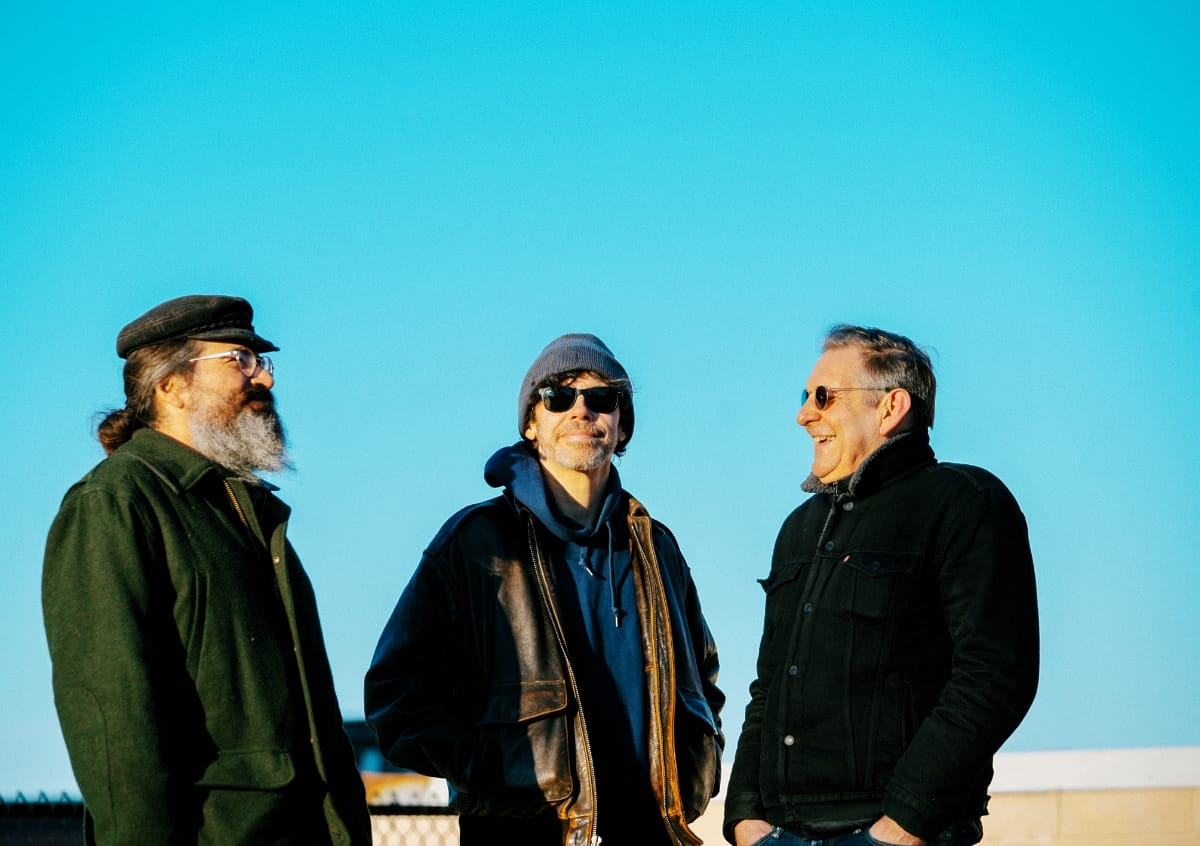
When We Surprise Ourselves
Sam: I'm glad we got into that because I read that you were not always a big Dead guy before Joe Russo's Almost Dead (JRAD), and I was curious how accurate that was.
Scott: Joe Russo and I have been very tight since the late '90s. We were all playing at the Wetlands and were in the right place at the right time for, if you want to call it, the jam band scene when it became a thing. We were all aware of the Dead. Well, I won't speak for anybody else. I was aware of the Dead, but I wasn't sitting around listening to it or considering myself a huge fan or anything. Then, when Joe got the Furthur gig, I went to see them at the Garden, but I was just going to see Joe. I was so psyched for my friend, thinking, “Wow, one of us made it," you know. Then Joe proposed playing the Grateful Dead music for one show. Initially, JRAD was going to be a one-off, and that was when I kind of dove into the songbook and have since become an enormous appreciator.
Sam: How did it feel to be embraced by that community and the world of Grateful Dead fans?
Scott: It's been amazing. I mean, what more could one ask for? The people have responded and have been so supportive of what we do with the music. I mean, we never talked about how we would play this stuff. We just got up and played the way we had been playing together fifteen years before that. We just weren't playing the Dead songbook back then. Anyway, the fans have been unbelievable. It's been a dream.
At first, I didn't understand, coming from not so much of a Dead background, really, the depths of the love of the music and the rabidness of the fanbase associated with that music. It's every musician's dream to have an audience willing to keep coming back and be open-minded about going to some strange, unexpected musical places. So that's what it's all about for us. A good gig for us is when we surprise ourselves, you know? We can all look at each other at the end of the night and say, “Wow, I didn't see that coming." I think that's why we keep showing up.
Sam: To you, what feels different about playing the Dead's music with JRAD versus original stuff with LaMP?
Scott: I always say that JRAD feels much more group-oriented. With LaMP, I get to focus on being more of a guitar nerd and on stuff I’m obsessed with, like guitar tone, my playing, and my feel. JRAD is more like arranging in real time as opposed to just jamming. It's five guys working together to come up with new arrangements in front of an audience. Whereas with LaMP, the arrangements are kind of set, and we can focus on being a groove machine together.
Sam: On that train of thought, the dynamics struck me about the new LaMP record. Working in an electric trio format, how does dynamics play a role? Did that come naturally to the group, or did it take some time to iron out?
Scott: We've never talked about it, it just happens. None of the three of us is a rookie at this point. We've all kind of been around the block as touring musicians. When you get guys together like that, there's sort of an unspoken set of things everyone has learned about what makes a good show and what makes a good record. If everybody considers the same things important, you don’t need to discuss it. They'll just naturally happen, and that's what you want. I don't want to play in a band that sits around talking about how we're going to play for hours on end. I just want it to happen.
That's exactly how it's been with LaMP. All three of us know that with a trio playing instrumental music, you have to think about dynamics, arrangements, pacing, and tempos, focusing on the fundamentals of music using the existing tools. All three of us are more interested in thinking about that than fighting to get in the spotlight. We've talked about how we enjoy that it's like a unit. It never feels like two guys backing up a soloist, even if someone is soloing. It's always conversational while thinking about the trajectory of the whole night and the whole show.
Sam: I can imagine it's refreshing knowing that it never gets to this place where it feels like people backing up a soloist or talking over each other in a cacophony of noise.
Scott: One tune on the new record, “Backfire,” has a proper guitar feature. We have joked, “All right, here it is. Here's Metzger's big time to shine.”
It's kind of the only guitar solo on the whole record, really, and live, that's turned into a moment that kind of stretches out. But again, I mean those guys are always contributing, and I'm trying to listen to them more than I'm listening to myself. Their ideas will push me into places I wouldn’t have thought of alone. Even if a solo happens, I listen to myself as little as possible. It's like having a conversation. You and I, we're talking here. I'm not just listening to what I'm saying, you know? We're moving through this together. That's how it's got to be even in a "solo" moment, quote unquote.
Sam: To have that level of comfort and fluidity in a band…
Scott: Oh my god, yeah! I'm very lucky, I mean, those guys have been playing together for like thirty years in different configurations. When people play for that long together, there's sort of like this X-factor thing that starts to develop. It just cannot be faked. It's like telepathy, and those guys have it in spades. So my job is to not get in the way of that, but to hopefully add to it somehow and bring a third voice into it. On top of the fact that those guys both have unique voices on their instruments—nobody plays drums like Russ, and nobody plays organ, or clav, like Ray. They have this unique hookup going on musically, and they've got unique voices inside of that hookup. They're doing something that if you want to hear it, you have to come to see it. They're the only two guys you’ll get it from, which excites me. What's the point of a band if it's not to have a unique sound?
Sam: Definitely. It almost seems like one of those things where friends who have known each other for so long have many inside jokes and sayings. Looking at it from the outside, I can imagine you seeing how these guys have such a deep understanding of how the other person is going to react, how they're going to play, or an idea they're going to bring to the table.
Scott: With many of my favorite bands, the first time I heard them, I was like, “What the hell is this?" To your analogy, I wasn't in on the inside joke. Then you listen for a minute, give it a chance, and have that a-ha moment, where it all clicks, and then suddenly that band is all you want to listen to, and it becomes your whole life. That's the goal, and it just seems people are having that a-ha moment with LaMP very quickly. I feel very fortunate, and many people come to the gigs without knowing what to expect. Maybe they've gotten word of mouth and they're coming in and immediately just being like, “Okay, I'm down”—they're into it! You can feel it on stage.
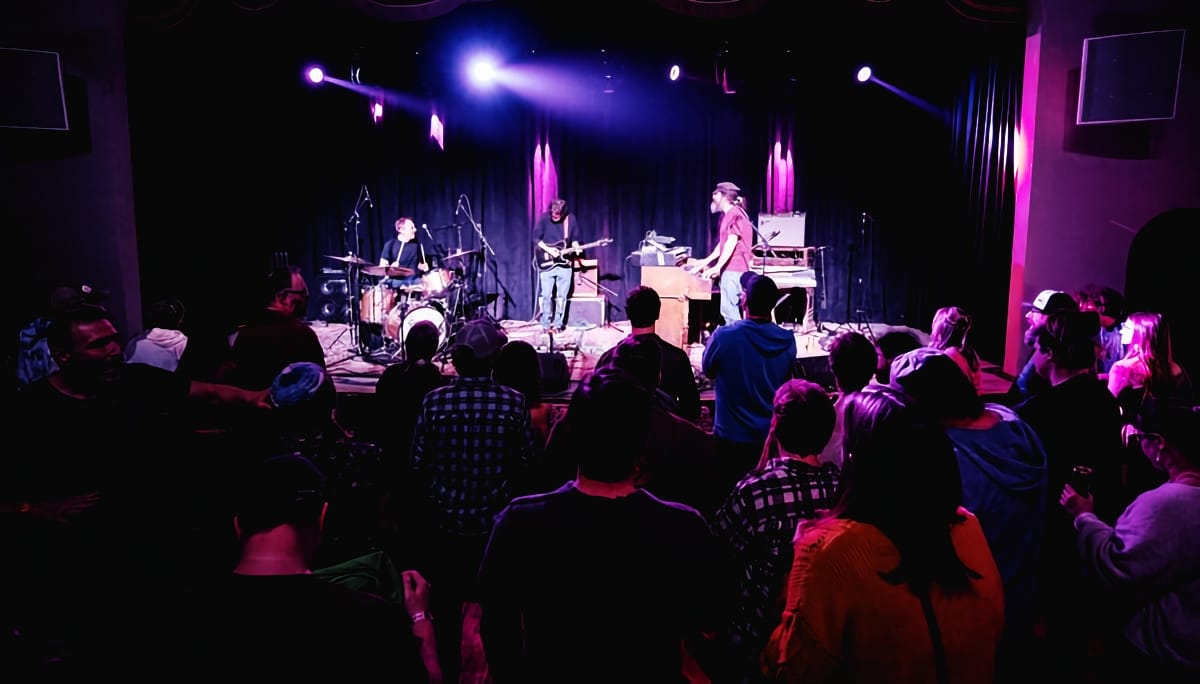
Muy Simpatico Vibe
Sam: So zooming out just a bit, how exactly did the guys in LaMP all get connected? What was the first gig, or what was the first sound that was made?
Scott: There were a few years of lead-up to the first sound being made. That was just the typical thing of Russ, Ray, and crossing paths backstage at festivals where we played with different groups. There was a muy simpatico vibe off stage between us, just chatting and hitting it off. You could tell these guys were my kind of guys. There was a lot of talk of "oh, we’ve got to play together sometime," and musicians always say that stuff to each other. If you're lucky enough to be busy and working all the time, scheduling can be tricky, especially since I live in Brooklyn and those guys live in Vermont, so we're not neighbors. Although I'm driving up to Vermont so often, it’s starting to feel like they’re just around the block.
But anyway, we ended up sharing a booking agent. He kind of put his foot down and said, "I'm booking you three a gig." We all were like, “Great, but what will we play?" The idea was “let's just get something on the books and we'll figure it out." So I drove to Vermont, to Nectar's. This was 2018. We played one night and played some of my songs that I'd written over the years, some of the ones Russ and Ray had written over the few years, and we threw together a couple of covers. We just rehearsed for an hour and a half at a long sound check that day, and then played the gig. It was clear that there was a connection, and it felt like it was worth investigating.
So, over the next year or so, we spent time sending tracks back and forth to one another, coming up with about seven original songs that we recorded in the summer of 2019. The plan was to do some gigs in early 2020 and see how it felt. But then we became the band with the worst luck in terms of lockdowns, because we tried four runs of shows that all ended up being canceled because of the new COVID variants, throughout 2021 and 2022. We just kept getting the timing wrong. Then JRAD and Trey Anastasio Band started playing, so our schedules got busy again. It wasn't until late 2023 that we were able to put together some real runs of shows. Immediately, there was a momentum that was surprising to us. It was like, “Oh wow, we could do this a lot more than we thought." So we hit it pretty hard in 2024 and will go at it in 2025.
Sam: Correct me if I'm wrong, but I'm assuming there was a lot of momentum or anxious energy building up after getting so unlucky with these shows, to the point that when it does finally work out, it's almost like you've got all this pent-up energy.
Scott: I remember one of the first runs that we could get up and running, we did two nights up in Burlington, and on the second night, the fire alarm went off. They had to empty the club, and we all had to go out on the street. It was in the middle of winter, and I remember being outside talking to Russ. I was saying, “Man, it seems like something is rooting against us. This is an uphill battle." We couldn’t catch a break.
But yeah, I think as you said, that energy and that anxiousness kind of slingshotted us into really getting after it as much as we could because we were anxious to play these tunes live and see how it went. Again, it goes back to what I said before: we’re not rookies, and we all realize how difficult it is to get momentum with a band. I feel privileged to be able to drive all day and show up somewhere, set up our stuff, and a couple hundred people show up in St. Louis on a Wednesday night to hear tunes that we wrote and believe in.
We all just appreciate the opportunity and care about it. We want it to be as good as it can be. It feels really good. It's like fucking A man, you know, this is our shit and people are digging it. It gets back to what we were saying before: I feel like I'm sixteen years old up there. It's really special.
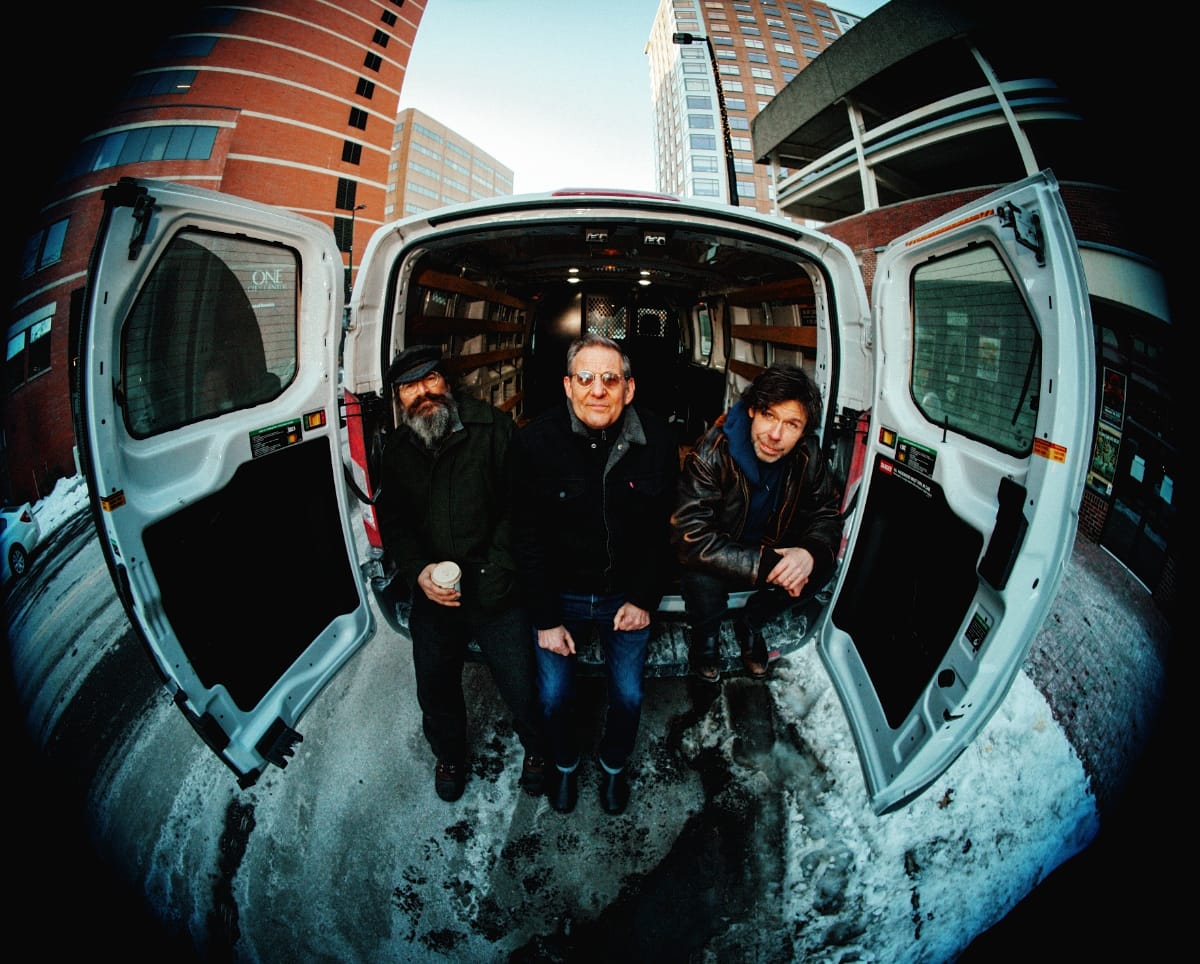
Mud Season
Sam: How does the songwriting process work with LaMP?
Scott: Well, much of it has come from beats Russ recorded on his iPhone and then sent around to us. Russ is a melodic drummer. People don't think of the drums as a melodic instrument, but it's in there, and it can be done, and Russ is one of the best in that department. He's the best of a few departments, but that's one of them. So, for this record, I'd say more than half of the songs started with a beat Russ sent around to me or Ray, and it would spark some kind of a melodic or harmonic idea for us. Then maybe Ray would put down an organ part, a chord progression, or I would do that, and somebody else would put down a melody. Then we'd get together at a gig and flesh it out more at sound check. For this record, I went to Vermont to do two full days of just fleshing out arrangements of the tunes. That was after we had an album's worth of ideas together.
I drove up to Vermont during something called 'mud season,' which I had never heard of. All the ground that's not paved there turns to mud after the snow melts, and your car can get stuck. When I drove up to the studio, which is off the grid, they said, "Well, you're going to have to get up the hill, but your car might not make it. There's no cell service, so if your car gets stuck, just walk back down the hill to the post office and tell them to call the studio, and we'll send the tractor down the hill." And I'm a Brooklyn guy going, "what the hell is this?" But anyway, my car made it up the hill, and those guys were all very impressed. I think they thought of me like some soft city boy, you know what I mean?
Sam: Sure. They're thinking, “Oh he's not going to be able to handle mud season."
Scott: Yeah I walked in and everyone's like, "Holy shit, you made it up the hill in the Honda CRV?" I said, "Damn right, I did."
Sam: It's like your triumphant movie moment, almost, a tale of overcoming.
Scott: It was, and I made it! Most of the arrangements we came up with in those two days made it onto the record. When playing live, some songs get to be six, seven, or eight minutes long, if not a little longer. We thought about it and were like, “Should we do that on the record or not?" We only did that on one song, on the record. Everything else is pretty much hit it and quit it, and that's intentional. I see it like the gig is the thing, and the album is sort of an advertisement for the thing. It's supposed to say, “Here's what we're all about. If you like this, you're going to love the show."
Sam: So you think of it like an appetizer of sorts?
Scott: Yeah, I listened to the record and have almost been thinking we might have gone too far in that direction. Some of them are ending, and I'm like, “God, I could have listened to that for another two minutes!" But, I guess leaving them wanting more is the professional thing to do, right?
Sam: When it comes to leaving them wanting more, how much does improvisation play a role in the studio versus on stage?
Scott: I think there are different schools of thought when it comes to that. If you have a cushy budget and you just want to explore the studio space as much as possible, then, you know, that's a way to get into it. I'm not personally a big fan of that. I lean more on the preparation end of things regarding studio stuff. In the studio, for me, it's more like, “Let's get in and let's get it down," then, if we have time, we can stretch things out. I see the studio as a more focused kind of thing, at least with LaMP. I like it to be like a condensed version of the thing, because it will never feel like it does live. Studio records give you one feeling, but the show gives you a different feeling. I think trying to kid yourself that you're going to get that live show feeling on a record is crazy.
Sam: You've long heard the trope of bands in the improv or jam world that try to tinker with the studio magic and then get frustrated when it doesn't sound like their usual live sound.
Scott: That's a constant thing for people, always. To me, the best formula I've come up with for myself is to manage the expectations of it. You're playing in a studio, it's not going to sound like a club, it's going to sound the way the room sounds. It's like, “Yeah, of course it doesn't sound like what we sound like live, because it's not live." That's a different thing. That's why live records exist. We've done one of those, and that's cool too, but it's very different from a studio record.
I've been doing a lot of interviews lately, and it just keeps coming up that one of my favorite instrumental records ever is the Beastie Boys' The In Sound from Way Out! They played all the instruments on it, and every tune was maybe two minutes long, but they're all so memorable and concise and focused. They get in and out. If a melody is memorable and the groove feels good, it'll fit with somebody, especially if it's shorter rather than longer.
Too much of a good thing is a real thing to keep in mind when you're playing. If you're playing a solo, there is a limited amount of time, and then it's time to wrap it up. If you go past that, the solo is not as good as it would have been had you wrapped it up two minutes before.
Sam: Could you briefly discuss the gear you used on the record?
Scott: I think about gear a lot, and I actually have a lot of gear, but then I'm super picky about what I end up using. I think Russ and Ray used their live rigs for this album, and I did too. I play a Victoria 35210 amplifier live with LaMP, and I brought that to the studio with me. I ran that in conjunction with another amp. I had the Victoria in the room with us, and my Magnetone Twighlighter in a separate room. I'm not big on worrying about overdubs and stuff. I like the sound of bleed on records. So many studios insist on isolating everything, and I am not into that. We recorded with Ben Collette at his studio called The Tank in Burlington, and he was down for the cause. I used my guitar and my pedal board that I use live with LaMP. I play a Creston T-style guitar that has P90s in it with LaMP. I probably used that on about 90% of the record, and the other tune or two, I played a Harmony Silhouette. I swapped out the pickups in that for some old '60s Kay pickups that sound unique.
The amp being in the room is the biggest thing for me because it changes the whole dynamic. I think when a lot of people go into the studio, they think, “Oh well, it doesn't matter and we don't have to get it right. We can just go in and fix it later." I'm the polar opposite of that, because once the amp is in the room with the drums, you're committed to playing it correctly. Otherwise, everybody's got to re-record the thing. It's not as fun to think, “We're just getting Russ's drums for now, and then I'll just go back and fix everything." For me, that takes all the challenge out of it.
Sam: I can imagine doing it the other way would be less motivating. Like you said, if there's always this idea that you can put some lipstick on it and fix it in post, it would be less rewarding.
Scott: I think so. You know, I want to play! You're possibly missing some magic in the moments that way, too. There's a moment that's a great example on the title track, "One of Us," where I’m playing, and then Russ and I both catch the upbeat at the same moment. We looked at each other and were like, “That's the shit!" You would have to calculate it if you went back in and did it as an overdub.
It's not for everybody because it puts a lot of pressure on us to play up to a certain standard, every single take. Not everybody wants that, but I just wouldn't feel right. It would just make the whole thing feel a little cheaper. I mean, I've played on plenty of people's records that have been really good, where the whole thing has been recorded, and then I’m brought in as a guest. We make it work always, but for my stuff, that's just not what I'm interested in, you know?
The trio I had before LaMP was called WOLF! and we did an EP called Adult Entertainment. We recorded all sitting within six feet of one another with our amps in this tiny, sweaty studio in Brooklyn in July with barely any air conditioning, and it sounds so good. Everyone’s bleeding into one another, and there are no overdubs. One of Us is similar—just three guys playing in a room.
Sam: That's not where you want to compromise. What’s the point of not doing it as you want when it’s your own thing?
Scott: Yeah, I want the experience, because that's fun! If it's not fun for us, it will sound that way on the record.
Sam: Has there ever been any consideration to introduce a vocal element to LaMP, or would that go purely against the ethos?
Scott: None of us is thinking about that. It's just not the thing for this. Plus, I think the melodies are great. I'm proud of the melodies on the new record because I think they're very singable and memorable. I'm not missing lyrics or vocals with the band, nor are Russ and Ray.
Sam: I'll give you that. They are very earwormy.
Scott: That's what Russ said, too. Russ called me a couple of weeks ago and said, “Man, I can't get 'Clipse-o' out of my head!" Okay, good, cheers! Mission accomplished.
Sam: LaMP is one of those projects that I feel sits on the periphery of many different scenes, whether it be more jazz and funk-oriented stuff or your overlap of Deadheads and Phish fans. People know the other guys from Trey's band, or maybe people saw you with Circles Around the Sun or other stuff. Do you have any sort of gauge on why LaMP resonates with such a wide and diverse sort of crowd?
Scott: I think a lot of instrumental music makes the mistake of just playing to musicians. We're playing to a broader audience than that. We're not just thinking that all the musicians will think this is the hip shit. We're just looking for a very enjoyable and digestible musical experience for normal people. It's for people who want to enjoy and appreciate some good tunes played well by some good musicians who are not looking to prove anything.
The favorite ones for me are the guitar geek guys who come out and they're like, "Oh man, I've learned 'Out of Curiosity' and I learned 'Jasper's World.'" They say, “Even my girlfriend likes this stuff." I always give the nod of recognition to the girlfriend at that point, because I know how that is. We're not playing just to impress the musicians and guitar geeks in the audience. Although we played the other night and these jazz students came up from Temple University. They learned the entire first record and played it as their recital. That to me is like the ultimate moment. The guitar kid in me is like—that gets me choked up, you know?
Sam: With an instrumental record, is there any particular message you want people to take away from it?
Scott: I don't know, it's hard not to answer that as a musician. We're not trying to convince you of anything with our music. It's like, I think this is a great groove, and Russ laid it down on drums, and Ray's organ sound was outrageous, and I put down a melody that I think is interesting and fun. Just check it out, you know?
My answer to myself would be that the fundamentals of music are enough. To play with good rhythm, good time, and good tone, and to interact with the players around you, is enough. It doesn't have to be blazing solos and over the top, cram it down your throat dynamics all night. The energy and enjoyment you can get from your favorite songs with lyrics and a vocal message can be achieved just like instrumental music. But then I put on "I Wanna Be Sedated" and think, “Hell yeah, this is the greatest thing ever made by humans."
Check out LaMP at ilikelamp.com and Scott Metzger at scottmetzger.com. You can purchase LaMP's One of Us from Bandcamp or Qobuz and listen on your streaming platform of choice.
Check out more like this:
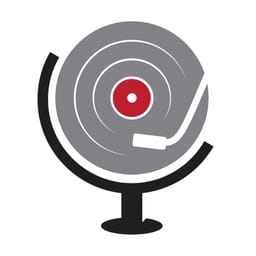 The TonearmSam Bradley
The TonearmSam Bradley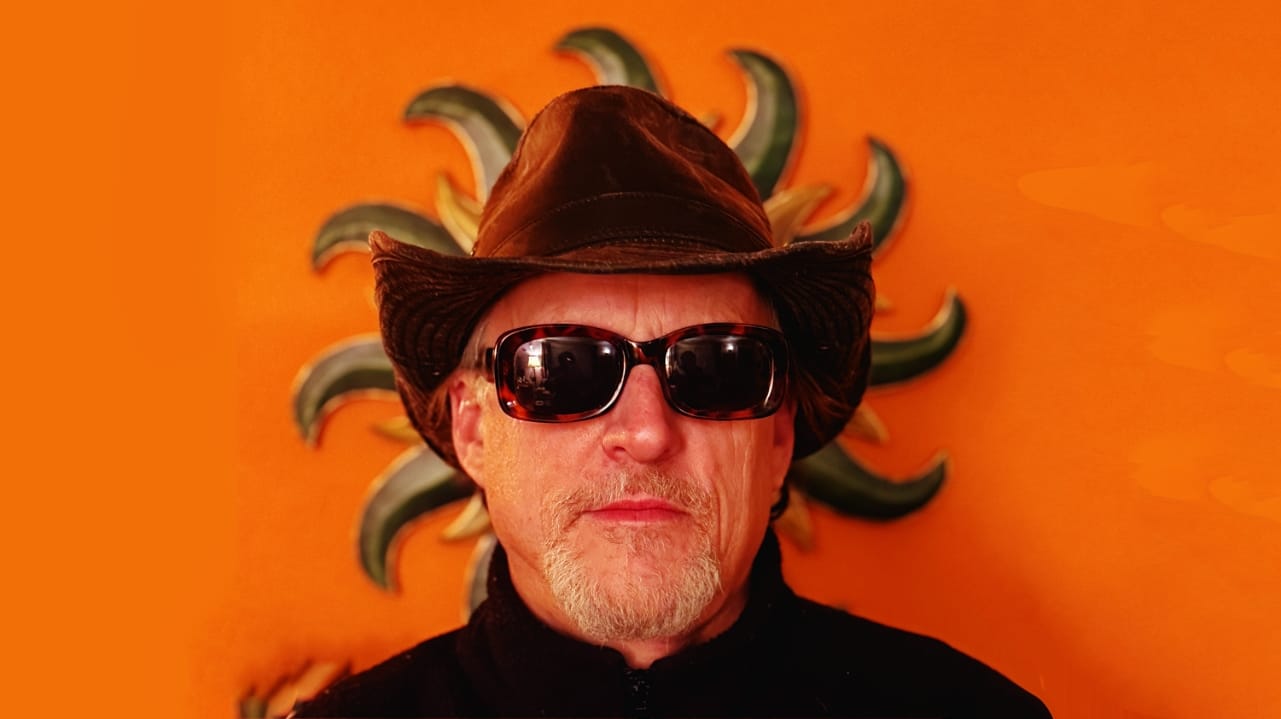
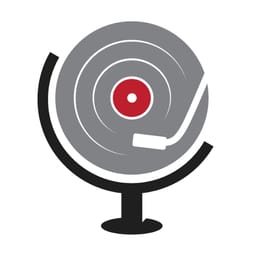 The TonearmLawrence Peryer
The TonearmLawrence Peryer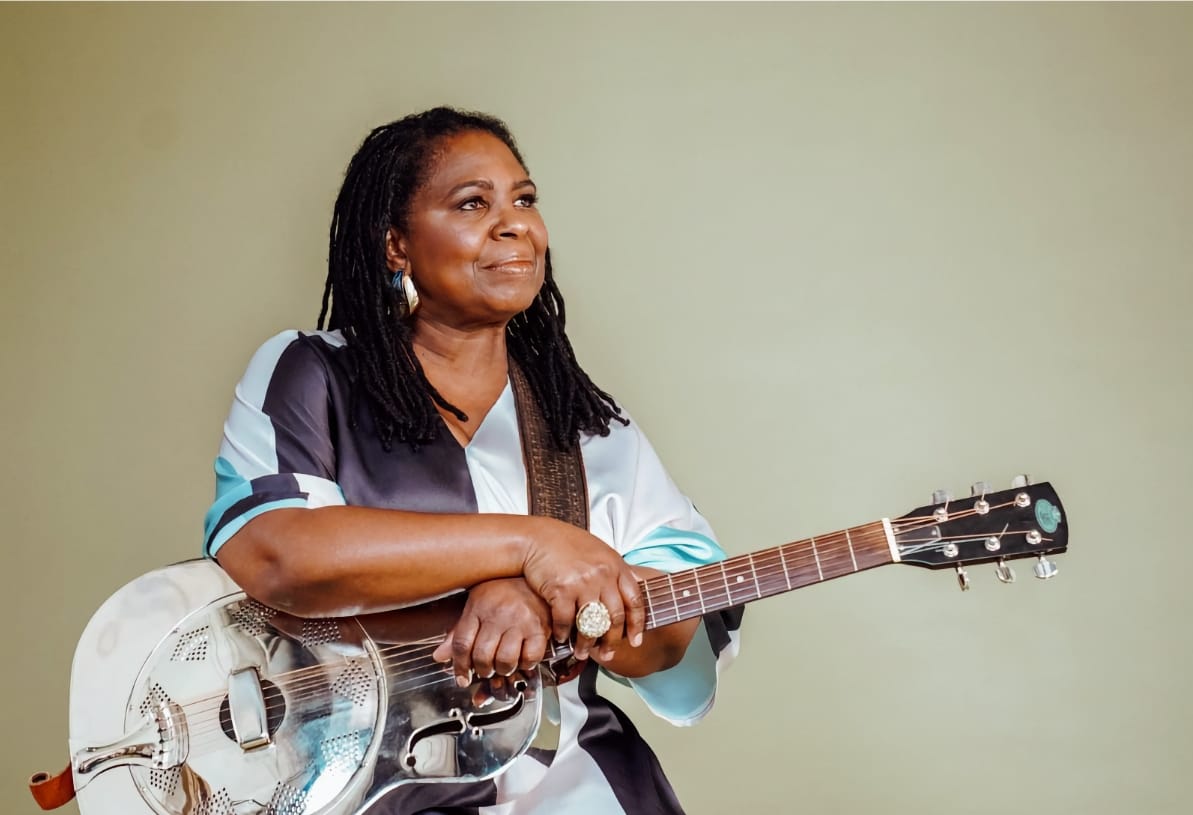


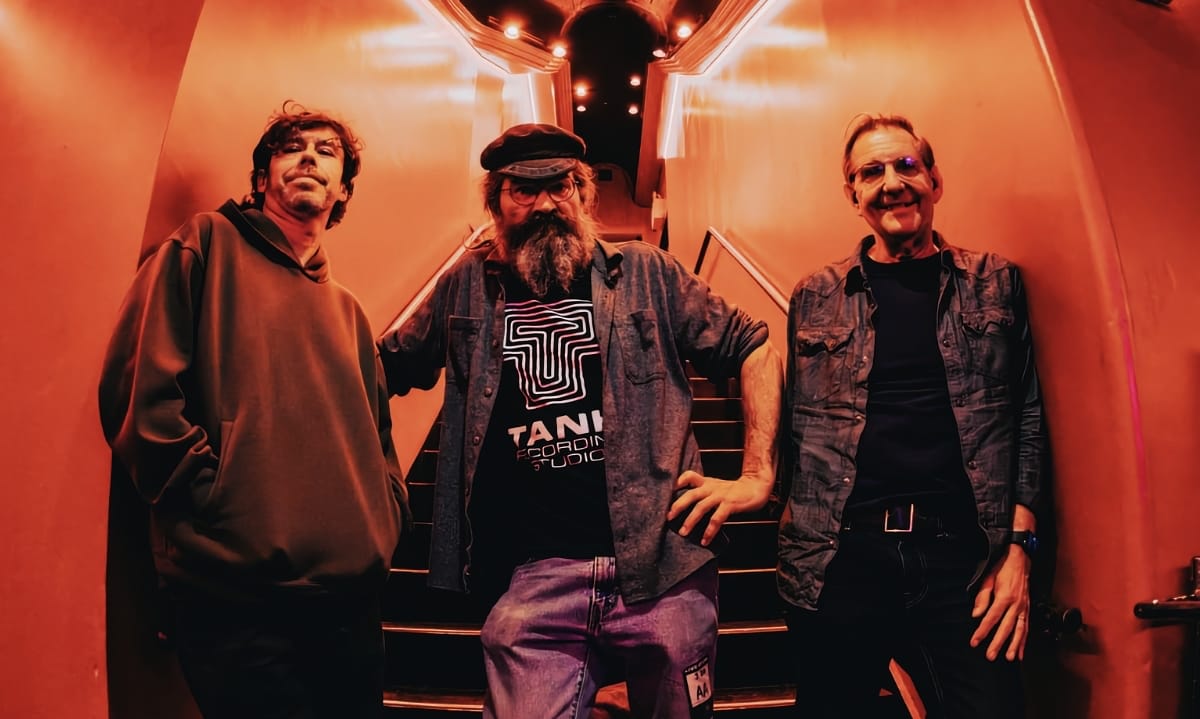
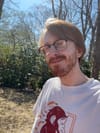

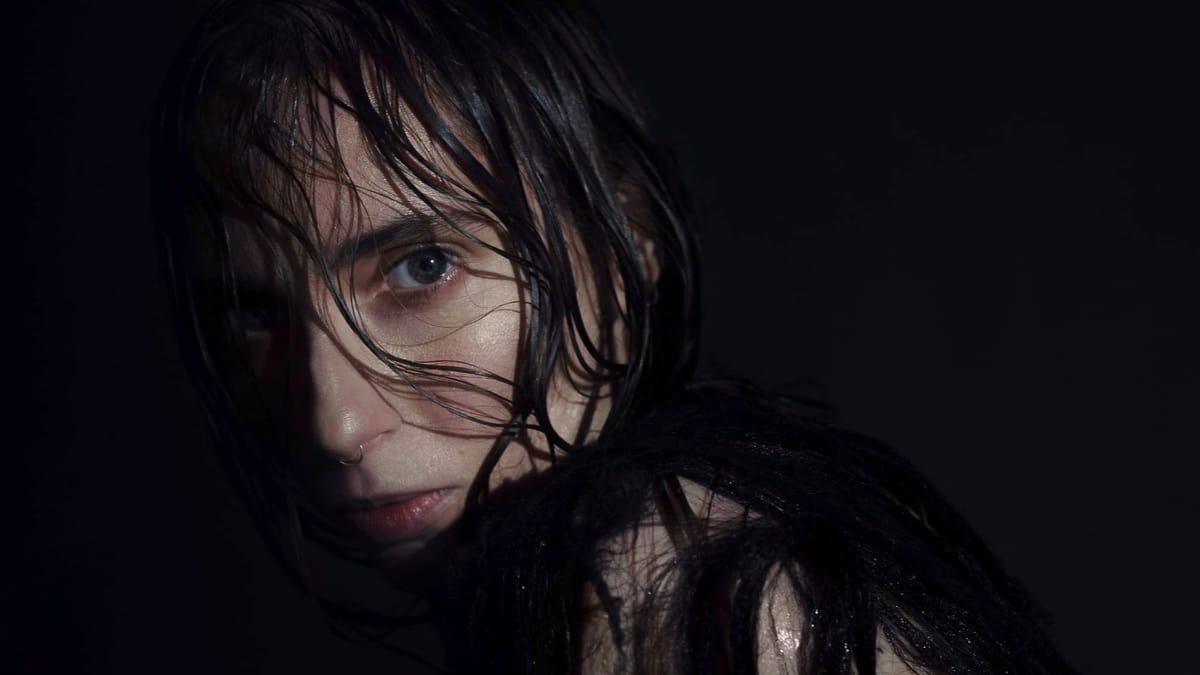
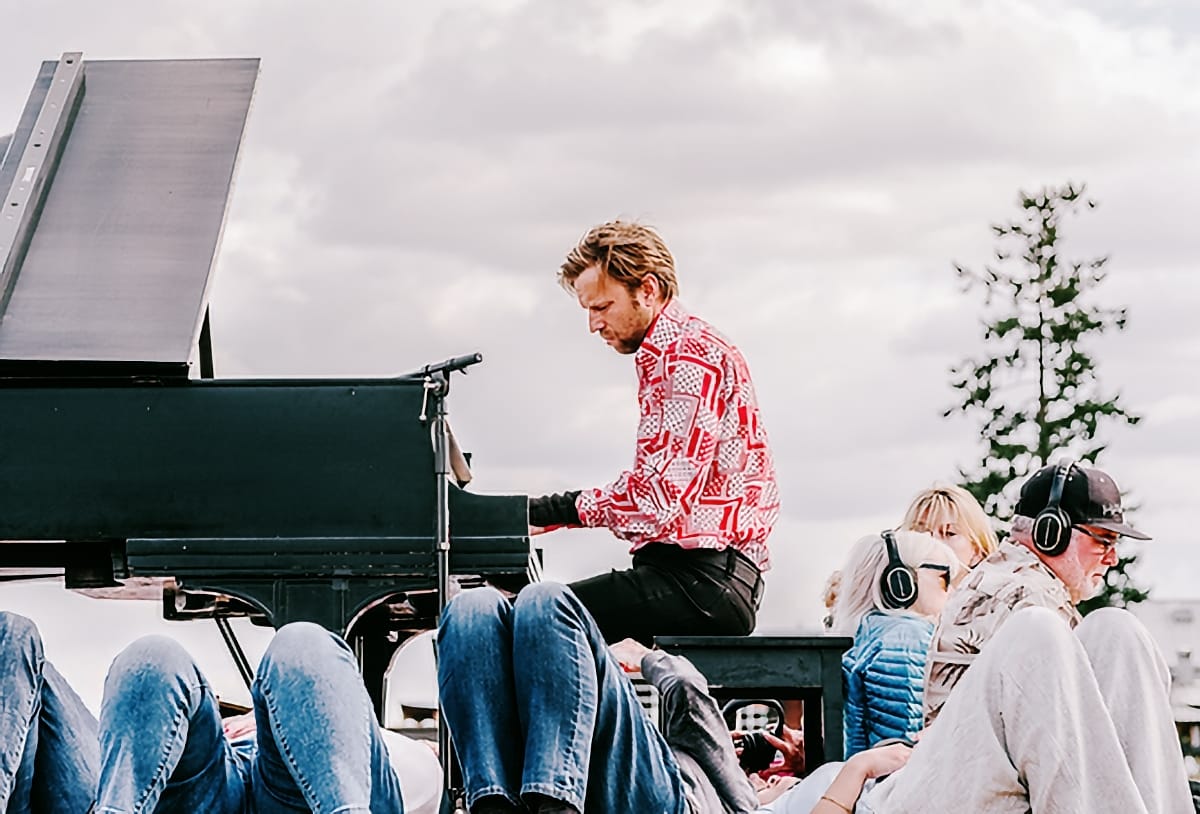
Comments